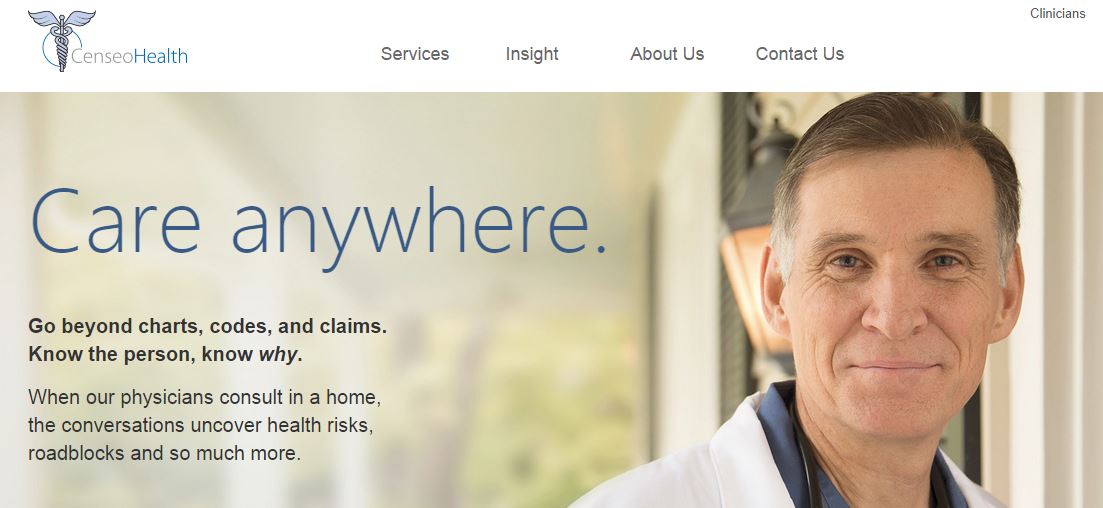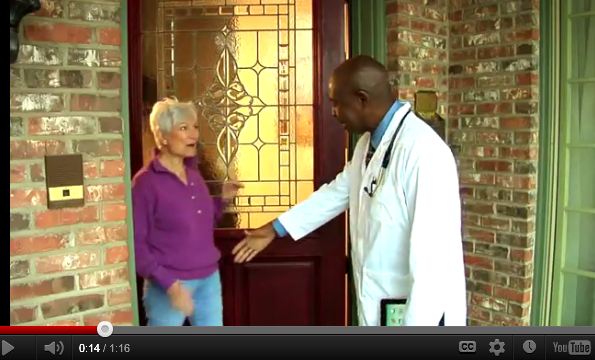Medicare Advantage Physician Evaluator Jobs: Reality Versus Advertising At CenseoHealth
Physicians looking for part-time jobs to supplement their income may have run across advertisements for “lucrative” Medicare Advantage evaluation opportunities at CenseoHealth. Here’s a typical ad:
|
|
Sounds pretty good, right? Well here’s what they won’t tell you:
1. Low Hourly Pay. Compensation is $100 per completed evaluation – but you have to drive to each member’s house (sometimes an hour each way) to complete a 31 page history and physical exam. Members are often medically complex, cognitively impaired, and/or non-English speaking. In the end (after counting travel time, cancellations, scheduling snafus, and long hours completing paperwork and FedEx shipping) the hourly wage works out to be about $30.
2. Poor Logistics. Members are scheduled back-to-back without regard to distance between their locations. That means you are chronically late, and some members cancel their meeting with you. No-show and cancellation rates (in my experience) are about 20%. You are not compensated for any of the time associated with driving to their location, talking to them on the phone, or otherwise trying to locate them when they are not home upon your arrival. Once a member cancels, you cannot fill their slot with someone else on the same day.
3. Threat of harm. Members mostly come from low to middle class income levels. Some of them live in truly horrific living situations (no electricity, a home overrun with cockroaches, no food or running water), and others are psychologically unstable. As a female physician driving alone into a very rural area to conduct a physical exam on a male patient who is actively psychotic… this can be dangerous. You never know what or who you will face. I have had to call social services on numerous occasions and have narrowly escaped inappropriate sexual advances.
4. Limited Support. There is no guarantee that anyone from the parent company will be available via phone when you call during an emergency. I have called on several occasions during critical situations where I had to leave a voice message and was assured that “my call was very important” and someone from provider services “would get back to me within 1/2 a business day.”
5. Questionable ethics. Schedulers do not explain to the members why you are coming to their home to evaluate them. Because the schedulers seem to work on commission, they often use questionable tactics to get the members to agree to the evaluation – such as telling them that the meeting is “mandatory” and will “take 20 minutes” or is “just a wellness visit.” For this reason, many members receive you with suspicion, wondering if you’re there to try to “throw them off the Medicare plan” or are angry that they were mandated to meet with you. Lengthy conversations and apologies to set the stage for your evaluation are commonplace.
6. Payment denials and exaggerated pay potential. Evaluations must be completed meticulously or the quality assurrance reviewers will reject your forms and you will not be compensated for your work (if you, for example, forget to check a box or use a non-approved abbreviation). Although the advertisements state that some physicians complete 35-45 evaluations per week, that is nearly impossible in areas where clients are not clustered together tightly. It is an extremely misleading statement, in my experience. Apparently online reviewers agree.
7. Glitchy and costly technology. In order to save on costs, electronic evaluations can be completed via an iPad rather than paper forms. Unfortunately, the software often crashes, resulting in a return to paper in the middle of an evaluation. This ends up increasing the amount of time required to complete evaluations as your evenings are spent copying paper records into the iPad program. In addition, you are required to purchase your own stylus for data entry, as well as all the equipment required during your physical exam (e.g. blood pressure cuff, bathroom scale, ophthalmoscope, stethoscope, and more).
8. Low-budget travel and accommodations. While the agency boasts that they will pay for your accommodations and rental car, that typically translates into a room at a low-budget hotel and a Toyota Yaris with roll-down windows and no GPS.
9. The truth is hidden. The real reason for the evaluations is to help health insurers obtain larger reimbursements from the government. A physician (or NP) is required to verify all of the patient’s current medical conditions to justify their “risk score.” Medicare Advantage plans get paid more to manage patients with higher risk scores, so they are very motivated to document the complete list of diseases and conditions per at-risk senior. Patients may benefit from having an objective third party review their health record, but this is not the main goal. Also, it is unclear if the higher risk scores ultimately translate to more benefits and services for the patients.
10. Treated like a number. Sadly, my experience with my recruiter (the person who matches your availability with evaluation needs in various states where you hold a medical license) has been underwhelming. I took the time to make suggestions about how to improve the process for evaluators, but my recommendations fell on deaf ears. Not only were my phone calls and emails not returned, but when I suggested that it didn’t make sense for me to continue seeing members when I had a 66% no-show rate he simply replied, “I took you off the schedule – we have an abundance of FL doctors so it is not an issue.”
Take a look at the lovely marketing promotional images for the job:

And this video of what it’s like to do a home evaluation:

Now take a look at some photos that I took while on assignment (note: these are not actual patient homes, but are very similar to ones I encountered):



Taking a job as a Medicare Advantage evaluator was a real eye-opener. Poverty and chronic illness in America takes on a whole new light when you experience patients’ actual home environments. It’s like being a medical missionary in your own country. I’ve met patients who hadn’t seen a physician in decades, diagnosed life-threatening illnesses, and made sure that care (or case management) was initiated for countless people living on the fringes of society.
I’m glad for the experience – but think that my peers considering similar work should be told the truth about what they will be doing. Being a Medicare Advantage evaluator is not like the shiny “care anywhere” ad suggests – and “lucrative” is not exactly the right adjective for $30/hour for an MD’s time. But if you don’t mind being treated poorly by your employer, investing a lot of your own money in equipment costs, and putting your life at risk in dangerous home environments – you may actually do some good for the forgotten, frail elderly of this nation, (while helping middle men like Censeo Health to profit from health insurance behemoths, alas). Now you know the truth behind the advertising and can make an informed decision about whether or not you’d like to sign up for this work.
Any takers?
















